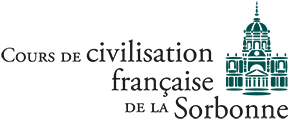Understanding Phonemes
The French language is rich and diverse, with one of its fundamental elements being the phoneme. The phoneme is the minimal distinctive unit of a sound that can change the meaning of a word. In other words, it is the smallest unit of sound that distinguishes two words. The French language has approximately 36 phonemes, and understanding their nature is essential for mastering pronunciation and comprehension. Learning these sounds is part of the phonetics courses offered by some schools and linguistic institutions.
Phonemes can be grouped into two categories: vowels and consonants. Vowels are sounds produced by vocal cord vibration without significant airflow obstruction. They can be short or long, nasal or oral, and are crucial for the sound of words. Consonants, on the other hand, are sounds where airflow is partially or completely obstructed. They can be voiced (with vocal cord vibration) or voiceless (without vocal cord vibration).
The 36 Sounds of the French Language
Oral Vowels (16) 1. [i]: si 2. [e]: père 3. [ɛ]: mère 4. [a]: chat 5. [ɑ]: pâte 6. [ɔ]: porte 7. [o]: eau 8. [u]: fou 9. [y]: lune 10. [ø]: peur 11. [œ]: peur 12. [ə]: le 13. [ɛ̃]: pain 14. [œ̃]: un 15. [ɑ̃]: sans 16. [ɔ̃]: nom
Nasal Vowels (9) 17. [ã]: sans 18. [ɛ̃]: pain 19. [œ̃]: un 20. [ɑ̃]: sans 21. [ɔ̃]: nom
Semi-Open Vowels (2) 22. [ɛ̃]: pain 23. [œ̃]: un
Consonants (9) 24. [p]: par 25. [b]: bar 26. [t]: tar 27. [d]: dar 28. [k]: car 29. [g]: gar 30. [f]: fer 31. [v]: ver 32. [s]: sel 33. [z]: zel 34. [ʃ]: champ 35. [ʒ]: jeu 36. [l]: lit
Phonemes are essential for learning French: correct pronunciation, facilitated by mastering phonemes, is crucial for effective communication and oral comprehension of the French language. Learners who understand the subtleties of phonemes can distinguish nuances in spoken language and avoid errors and misunderstandings. Additionally, knowledge of phonemes contributes to the correct spelling of words, thereby strengthening reading and writing skills. Phonemes also play a key role in acquiring French vocabulary, allowing learners to recognize and memorize words more easily.
Phonetics Courses
In a phonetics course, the study of phonemes is central: phonetics is indeed the branch of linguistics that deals with the study of speech sounds. Learning phonemes often includes practical exercises: students listen to, produce, and compare different sounds of the French language to improve their oral comprehension and expression. Phonetic transcription systems, such as the International Phonetic Alphabet (IPA), are often used to represent these sounds accurately.
The study of phonemes is particularly important for learners of foreign languages, as it helps them acquire correct pronunciation and distinguish specific sounds of the target language. It is also crucial for linguists and speech specialists working on issues of theoretical linguistics, phonology, or in fields related to communication and applied linguistics.









